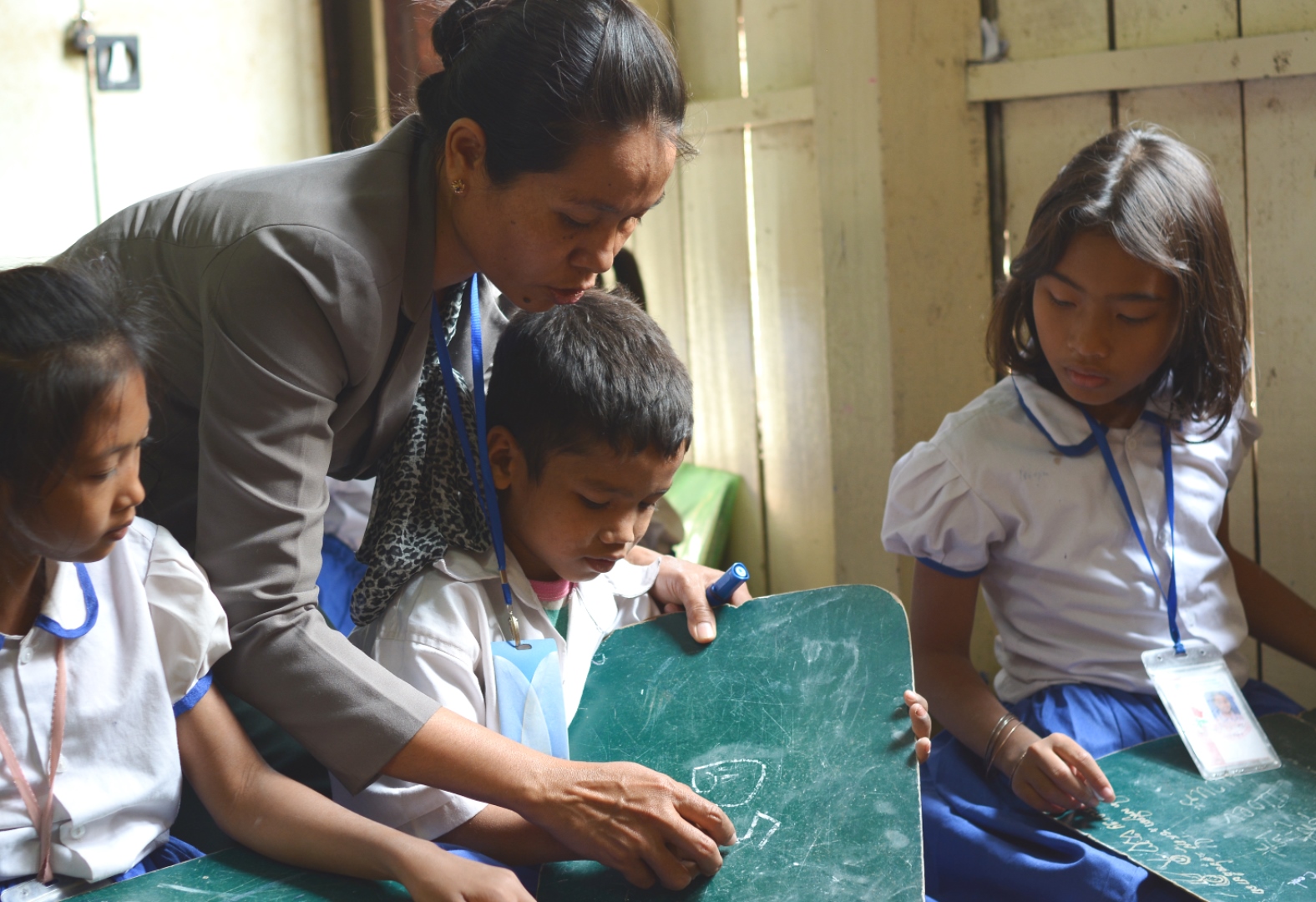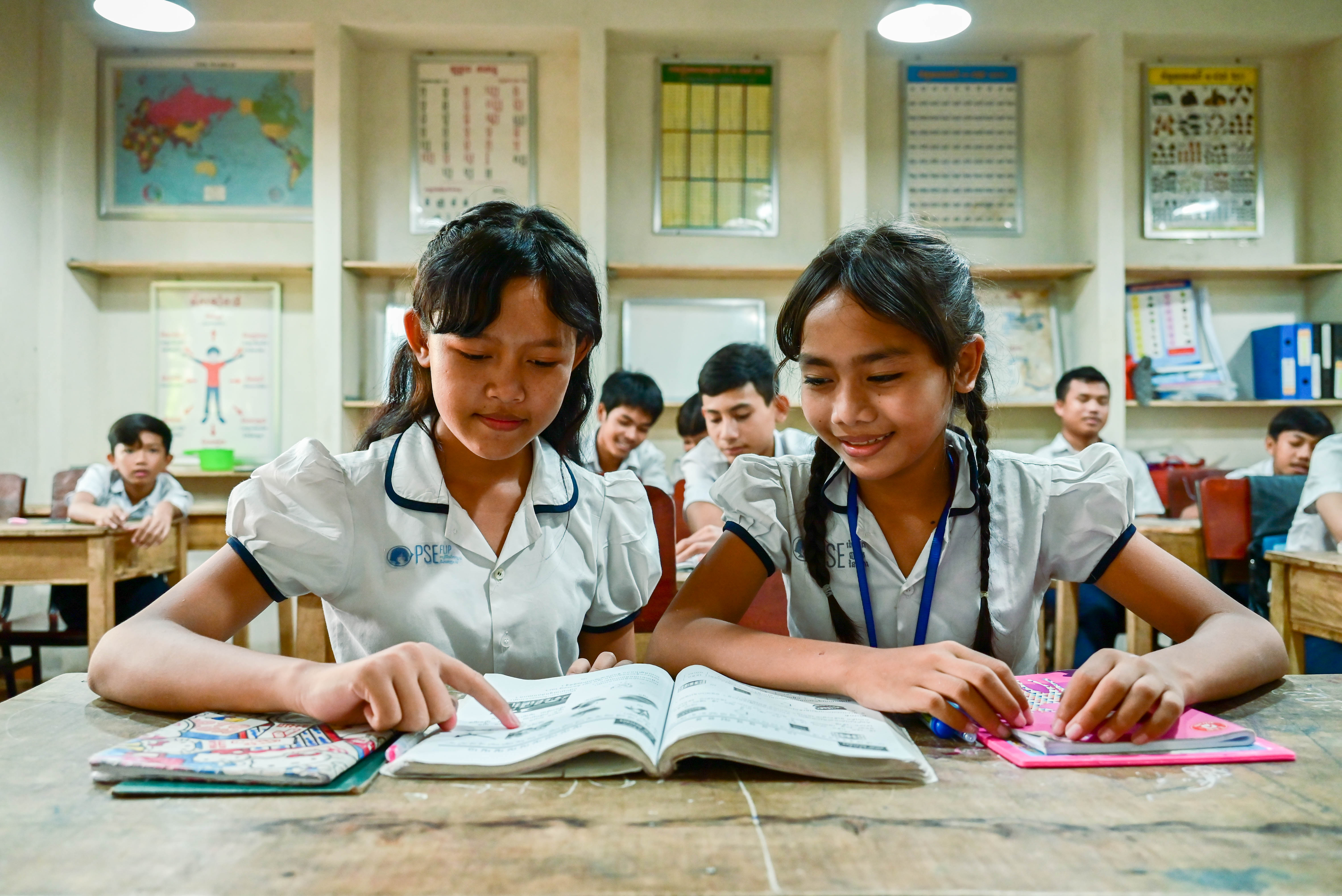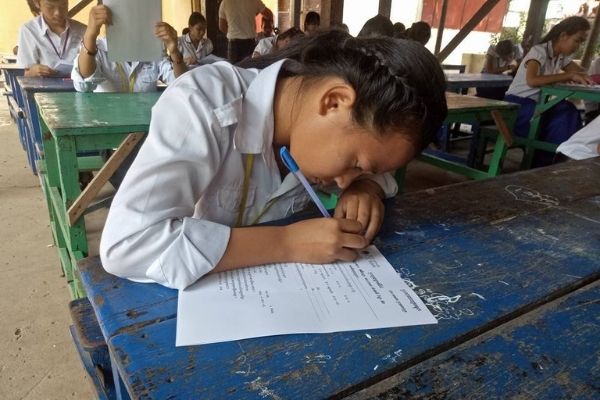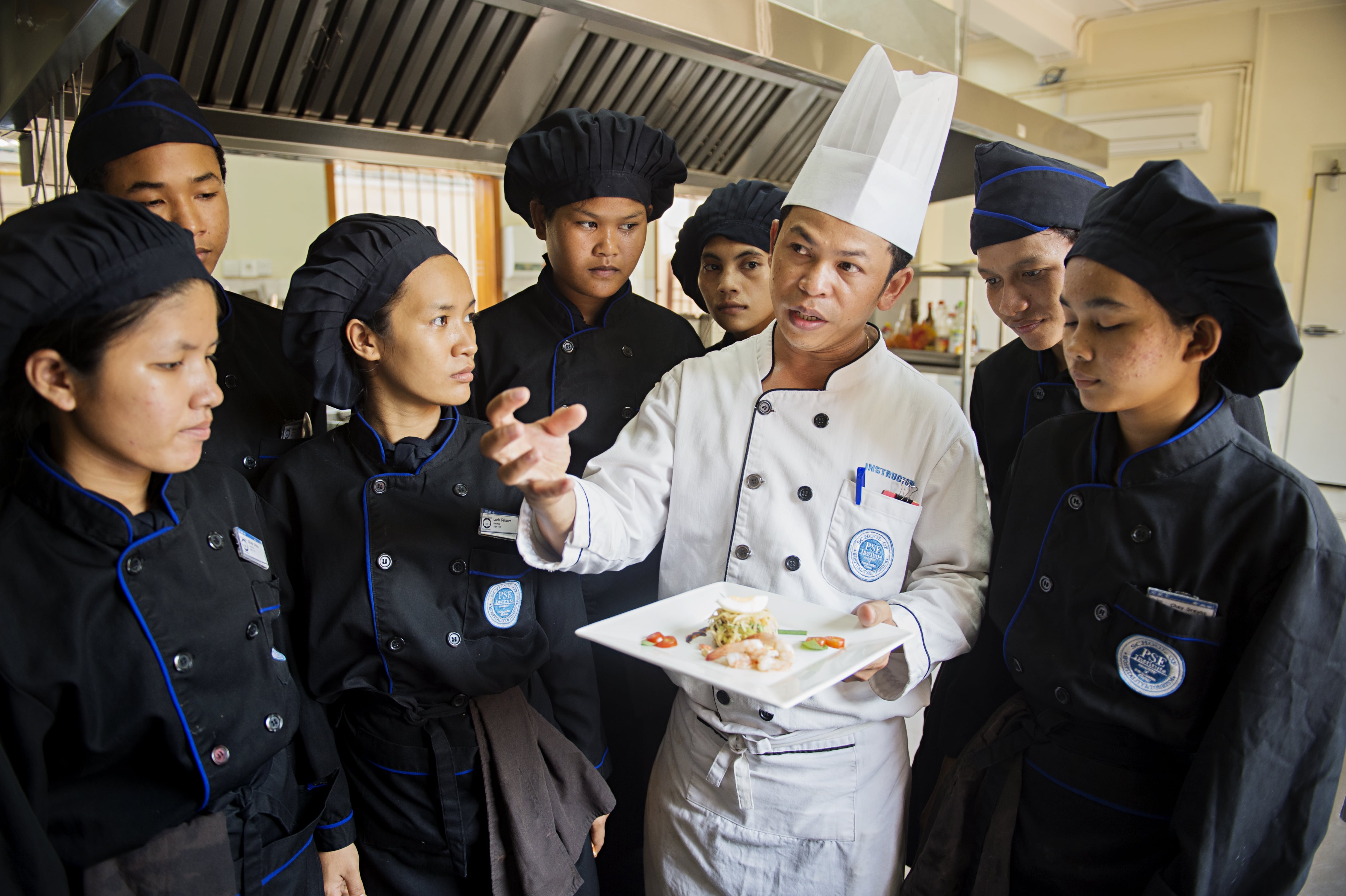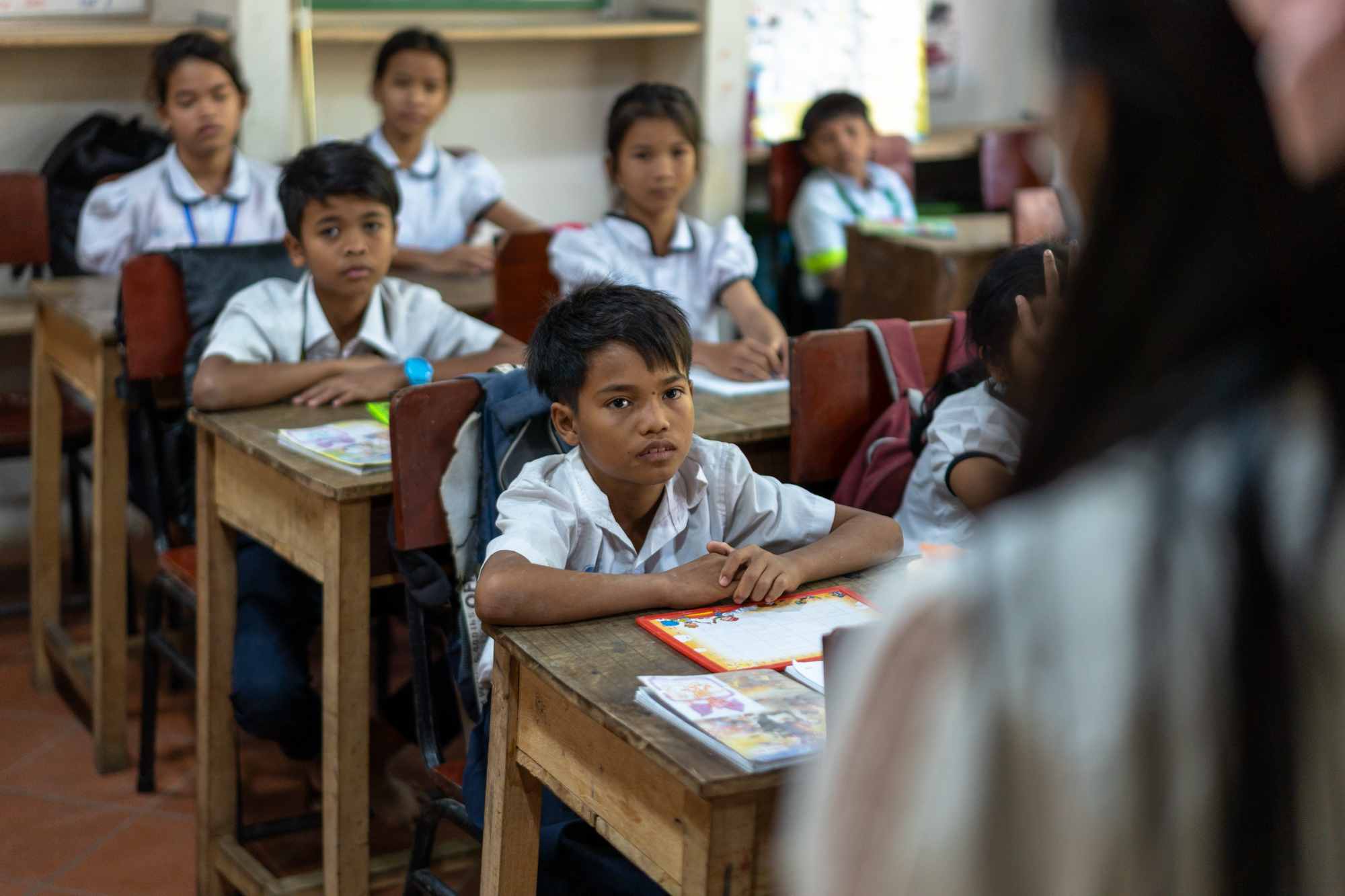
Giving poor children in Cambodia access to education
Pour un Sourire d'Enfant's actions to support the education the poor children in Cambodia
"Go to school, like the other children" replied the little scavengers at the municipal dumpsite in Phnom Penh when Christian and Marie-France des Pallières, the founders of Pour un Sourire d'Enfant, asked them what they needed in 1995. Since then, educating the children has been at the heart of the association's mission.
Continuous support for the education of children
Our education programmes are guided by the vision of Christian and Marie-France des Pallières, the founders of the association: "the best education for the poorest".
The educational paths are adapted to the needs of each child: remedial education for children who have dropped out of school, a programme for school dropouts, and special care for children with disabilities. All our programmes are inclusive and designed to accompany each child to the fullest extent of their abilities and possibilities so that all can achieve their dreams.
In addition to general education, students are taught languages, computer skills, soft skills and environmental awareness.
Everything is done so that the children can realise their full potential and find a job that will enable them to escape poverty for good.
The remedial education programme
Faced with children being seriously behind in their attainment, Pour un Sourire d'Enfant has set up an accelerated teaching method for children who have been out of school for too long or are too old to re-enter the traditional school system.
In our remedial school, within the Pour un Sourire d'Enfant centre in Phnom Penh, children study two academic years in one. Over three years, they reach primary school level.
Based on a lively and participatory pedagogy, the method gives convincing results and is recognised by the Cambodian Ministry of Education which has already implemented it in some state primary schools.
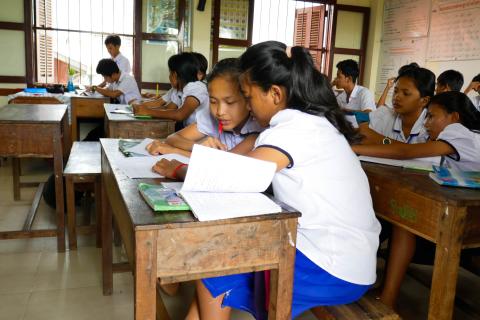
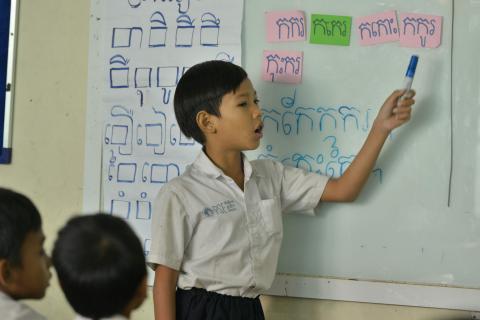
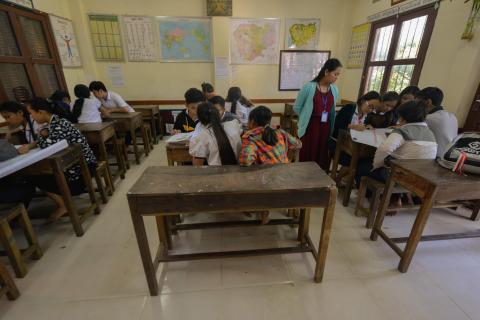
Providing access to school for all children
Schooling in state schools
When children are not seriously behind in their schooling for their age, we send them to state scools near their home.
Pour un Sourire d'Enfant provides school materials, uniforms, transport (bus or bicycle), a meal, help with orientation and monitors the children's attendance and results.
Education for children with disabilities
An education adapted to children with disabilities
Pour un Sourire d'Enfant welcomes about 40 children with disabilities in 5 classes of its Adapted Education Section in Phnom Penh Centre.
The children carry out adapted activities in classes organised by groups of children according to their age and abilities. Each group has a dedicated teacher, assisted by specialised educational assistants. There are many activities shared with the other children at the Centre, which greatly encourages integration. Families are also supported in taking care of their children.
One of the classes is for children with severe disabilities. They are welcomed for the day and receive home visits from their educators the rest of the time.
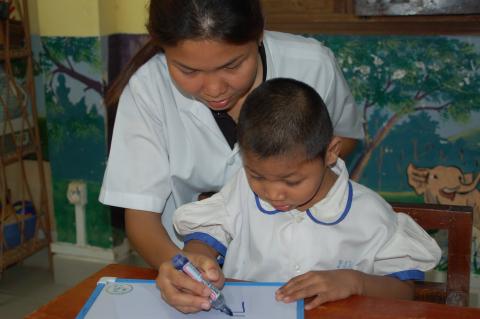
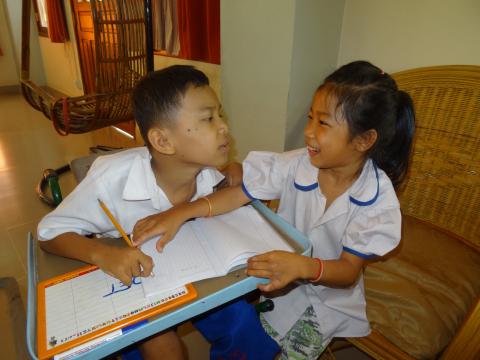
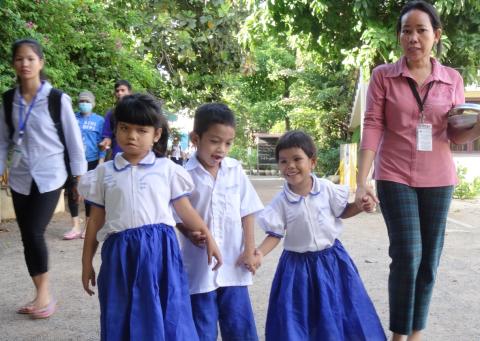
Sports and cultural education
Sports activities
Pour un Sourire d'Enfant offers many extracurricular activities to the children in its programmes. Among them, sport holds a very important place. Indeed, it contributes to the development of the children and allows them to learn patience, tenacity, willpower, team spirit and initiative.
In addition to school sports, the children take part in many competitions (municipal, national and even international). They are feared opponents! Basketball, hockey, football, athletics, rugby... our youngsters have won numerous medals!
The transmission of human values
This passion for education is also expressed through the school of life, training sessions in our school in Phnom Penh, to which children attending state schools are also invited, on the themes of solidarity, the environment... Discussions and application activities are organised by class.
Arts and culture
Knowledge of their cultural roots is equally important for the reconstruction of the children.
Tradition tales, "Apsara" dances, popular dances and theatre are present in the programmes: they give the children the opportunity to perform during the celebrations at the Pour un Sourire d'Enfant centre in Phnom Penh, which the young people love so much.
Theatre allow them, among other things, to act out the terrible situations they may have experienced and thus to exorcise them (violence, alcoholism, prostitution, etc.).
The children can express their creativity through drawing, painting and music.
Sponsoring a child to provide an education
The work carried out by Pour un Sourire d'Enfant is indispensable: it allow children to realise their dream of going to school and to regain hope for a better future.
Learning takes time, the children taken care of by the association remain in our programmes for 10 years on average. That is why we have set up the sponsorship system: it enables us to take care of the children until they finish their schooling, until they find a job that will allow them to escape extreme poverty for good.
We cannot leave children by the wayside. Help us defend the right to education for all by sponsorship a child!
Q&A
- Is education a right?
-
Education for all, boys and girls, is a right recognised by the 1989 International Convention on the Rights of the Child. It is essential for developing knowledge, skills, personality and ideas. Going to school is a way to learn how to be a citizen of tomorrow, fully integrated into society.
- How does Pour un Sourire d'Enfant integrate children with disabilities into its school?
-
Children with disabilities are welcomed in the association's Adapted Education Section, which meets their specific needs. They share many activities with the other children and youngsters supported by the association. This is a great learning experience for all!
- Does sponsoring a child with Pour un Sourire d'Enfant contribute to their education?
-
Sponsorship allows us to provide the children's schooling over the long term, from early childhood to vocational training. It is essential to ensure that no child is left by the wayside and that we can, together, respond to the mission we set ourselves: to enable children to escape destitution to get a decent job!


